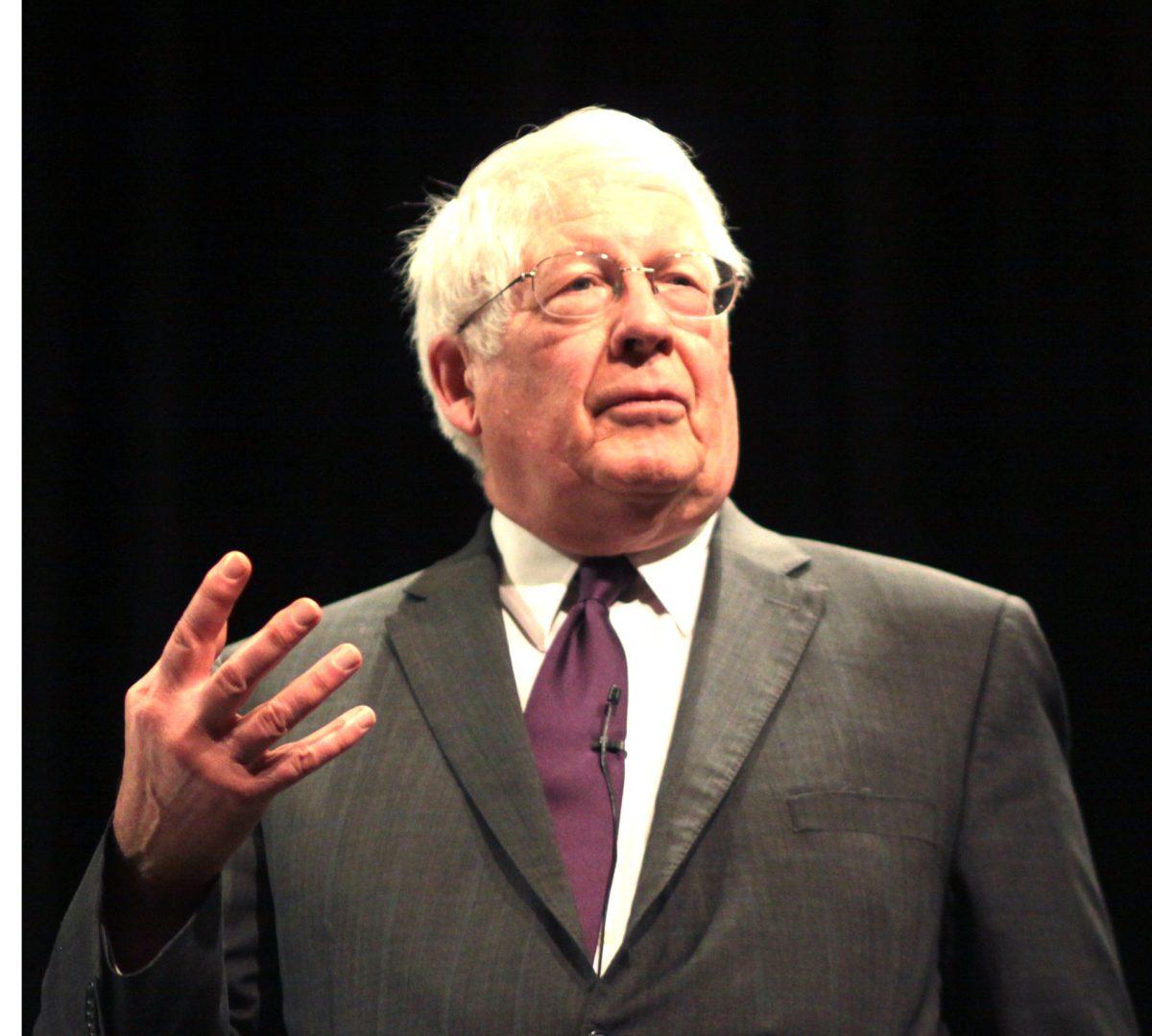While visiting constituents during a town hall meeting in Raleigh Monday, Democratic Congressman David Price called for bipartisan efforts in Congress — focusing on jobs and infrastructure, not the deficit — to improve the nation’s economy.
William Peace University hosted the forum Monday evening in Kenan Recital Hall. Price’s talk addressed the implications of the budget sequester and upcoming legislation when the House reconvenes today after two weeks of constituent work weeks.
The upcoming legislation Price expects to handle now includes bills ranging from comprehensive immigration overhaul, gun violence safety reform, an “overdue” farm bill and a bill to improve highway infrastructure.
“There is some uncertainty surrounding some of these measures,” Price said. “Many things have fallen victim to partisan division and polarization in Washington.”
The most basic point of uncertainty Price mentioned was “the constant turmoil over the federal budget.”
The U.S. House and Senate have passed budget resolutions and President Barack Obama will submit his budget for deliberation this week. Though Price considers the budget an opportunity to decisively make plans and evaluate the nation’s resources, it is “too often superseded by lurching from crisis to crisis.” Price cited the Government Shutdown Crisis, the Debt Ceiling Crisis, Fiscal Cliff and the sequestration legislation as examples of unhealthy leadership in the Republican-controlled House.
“This is not the way the government of a great country does a budget,” Price said.
Price represents most of the Triangle, including all of UNC-Chapel Hill and most of N.C. State, with his district’s line coming close to the boundary of Duke University’s campus. North Carolina’s congressional districts were redrawn in 2010, leading to a new Fourth District that Price considers negatively gerrymandered. He said the silver lining in redistricting is his new representation in central Raleigh, which includes NCSU Main and Centennial campuses.
David McLennan, a professor of political science at Peace, moderated the forum and fielded questions from the impact of the Affordable Care Act, for which Price voted, to college affordability.
Price briefly talked about proposed budget cuts to the UNC System and higher education in North Carolina, and though these pertain to state and not federal politics, he said both have a responsibility to keep education strong and affordable.
“Budget cuts can have a lot of negative effects on student bodies and university operations,” Price said. “There is a federal role, though not the dominant role, in supporting higher education at this time. The first is student support — making student loans affordable — which we’ve reformed.
“We’ve cut out the middleman, so banks can’t sweep out the profits and so the money can go to the students. And then you have the research aspect. It’s been slammed and is getting slammed. Research scholars are very alarmed, and it seems like many are now coming to see me.”
The UNC System may lose a total of $106 million in federal funding due to sequestration, according to the Association of Public and Land-grant Universities.
Price also said current budget debates in Congress may threaten Pell Grants. The congressman added that the state government has to keep up its end of the bargain in supporting education.
“It’s fair to say that there are some emergency situations — both in Raleigh and Washington — about the future of higher education,” Price said.
Outlining the Obama administration’s plan for fiscal stability, Price presented evidence of private-sector jobs added since 2010, adding that recovery hasn’t been as fast and intense as he would have liked.
Price said his hope was for both the Democratic and Republican parties to agree on a comprehensive fiscal plan in the coming months, looking past partisanship.
“The economy should be the No. 1 issue,” Price said. “For people who are concerned about reducing the deficit, as we all ought to be, the first lesson we need to learn is the best way to get a balanced budget is a healthy economy. You’re never going to get there just by raising taxes or just by cutting spending.”
A heated debate nearly ensued when a woman called “Obamacare” a “tax” during the open-floor forum. While some members of the audience applauded her statement, others applauded Congressman Price for refuting it.
In spite of the disagreements that resulted from controversial issues raised, this meeting was nonetheless a practical demonstration of democracy in action, McLennan said.
As an incentive for students to attend, McLennan offered his students extra credit. He is one of many professors who believes direct involvement in political affairs is a vital component of a college student’s career.
“It’s important to see members of Congress and hear them directly,” McLennan said. “Even if you disagree with them, it’s important to gain firsthand knowledge.”








